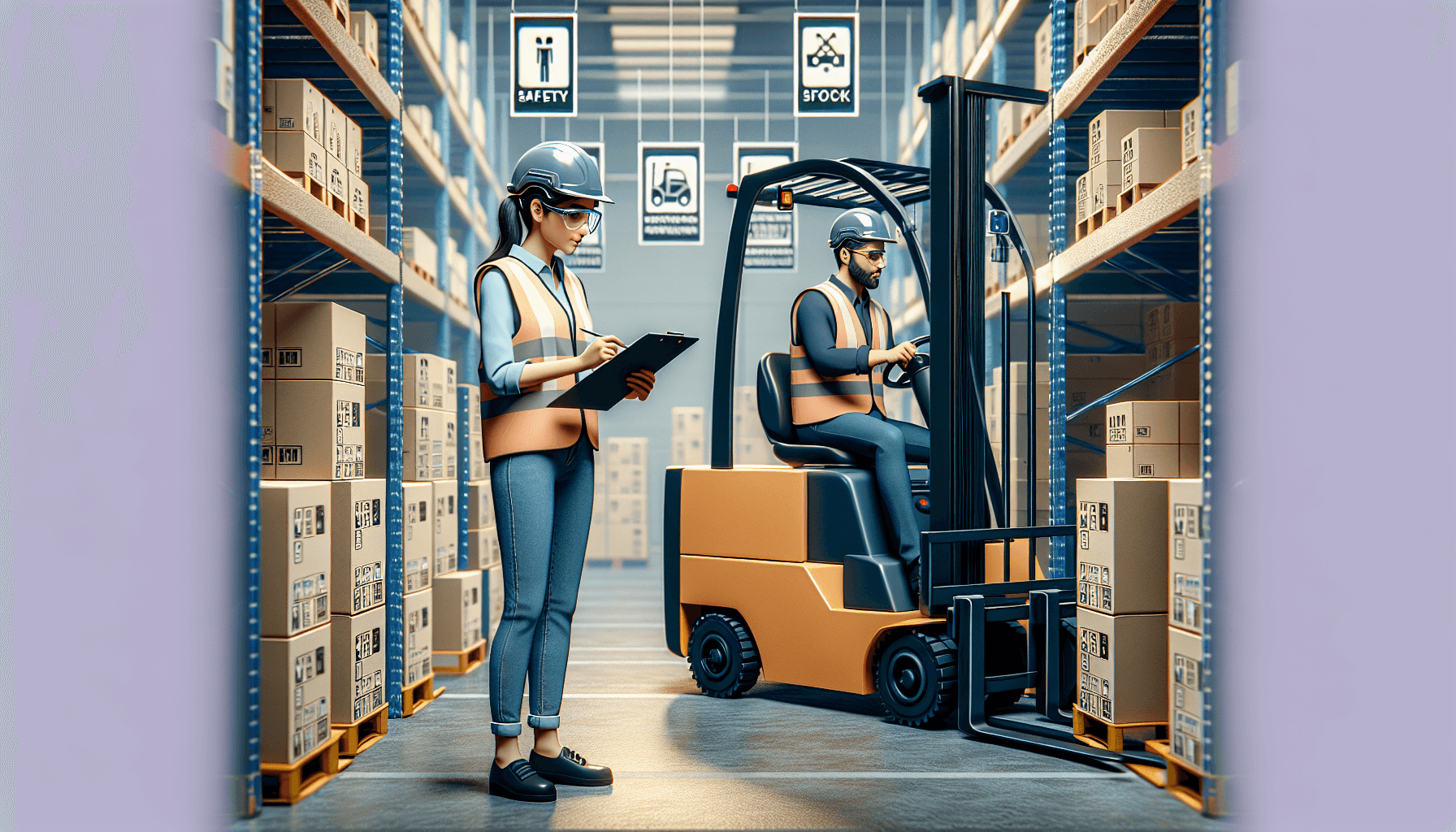Forklifts play a crucial role in ensuring efficient and smooth operations within the warehousing industry. They are used extensively in retail environments to move heavy loads, stack pallets, and transport goods from one location to another. However, it is important to prioritize forklift safety to mitigate the risk of accidents, injuries, and property damage.
The Hazards of Forklift Operations
Operating a forklift without proper training and safety measures can lead to disastrous consequences. Forklift accidents can result in severe injuries, such as crushing incidents, falls, collisions, and struck-by accidents. These accidents not only harm the employees but also damage the equipment, infrastructure, and inventory.
Some common hazards associated with forklift operations include:
- Tip-overs: Forklifts can tip over if overloaded, driven on uneven surfaces, or if the operator maneuvers aggressively. Tip-overs can cause serious injuries or fatalities.
- Falling objects: Improperly loaded or unstable loads can fall from forklifts, potentially injuring nearby workers.
- Collisions: Forklifts can collide with other vehicles, stationary objects, or pedestrians if the operator is not attentive or lacks proper training.
- Pedestrian accidents: Forklifts often share aisle space with pedestrians, increasing the risk of accidents if there are no clear guidelines or safety precautions in place.
- Carbon monoxide exposure: Forklifts generate carbon monoxide, which can be harmful if the working areas are not adequately ventilated.
These hazards highlight the critical need for enforcing forklift safety protocols in retail environments. By prioritizing safety, retail businesses can minimize accidents, improve productivity, protect their employees, and save costs associated with property damage and legal liabilities.
Best Practices for Forklift Safety in Retail
To ensure forklift safety in retail warehouses, it is essential to implement a comprehensive safety program. Here are some best practices that businesses should consider:
1. Operator Training and Certification:
All forklift operators should undergo proper training and obtain certification. Training programs should cover essential topics such as operating procedures, load management, inspection protocols, and safe driving practices. Regular refresher courses can also help reinforce the importance of safety and address any gaps in knowledge or skills.
2. Regular Equipment Maintenance:
Maintaining forklifts in good working condition is crucial for safety. Regular inspections, repairs, and servicing should be carried out to identify any mechanical issues and ensure that all safety features are functioning correctly. It is important to follow the manufacturer’s guidelines for maintenance and schedule regular check-ups.
3. Implementing Traffic Management:
To prevent collisions, businesses should establish and enforce proper traffic management practices within their warehouse premises. This includes clearly marked walkways, floor markings, and signage to separate pedestrian and forklift traffic. Implementing speed limits and installing mirrors, safety barriers, and warning systems can also help improve safety.
4. Load Management and Stability:
Proper load management is crucial for maintaining forklift stability. Operators should be trained to assess load weight and size, ensure even distribution, and stack or secure loads correctly. Overloading or unbalanced loads can cause tip-overs or falling objects, posing a significant risk to workers and property.
5. Pedestrian Safety:
Creating a safe environment for pedestrians is equally important. Establish dedicated pedestrian walkways, provide adequate lighting, and install mirrors or warning systems at blind spots. Train employees on the importance of staying alert and aware of forklift movements and provide them with high-visibility vests or other safety gear.
Implementing these best practices can significantly enhance forklift safety in retail warehouses. However, it is also essential to regularly review and update safety policies as the business evolves, and new risks emerge.
Protect Your Warehouse with HCO Innovations
HCO Innovations understands the significance of warehouse safety and offers comprehensive solutions to optimize safety, productivity, and efficiency within warehouse operations. With their warehouse safety evaluation services, they can assess your current safety protocols, identify potential hazards, and recommend customized solutions to mitigate risks. Their expertise and experience can help retail businesses create a culture of safety, protecting both employees and assets. To learn more about their warehouse safety evaluation services, visit HCO Innovations.

